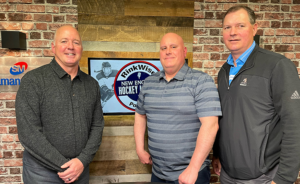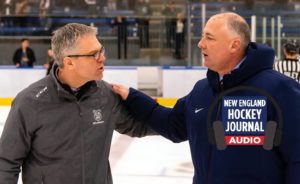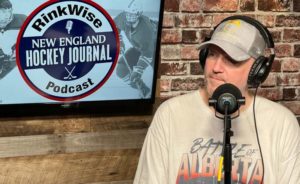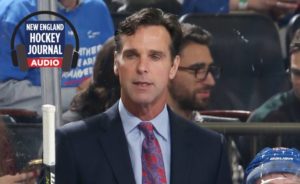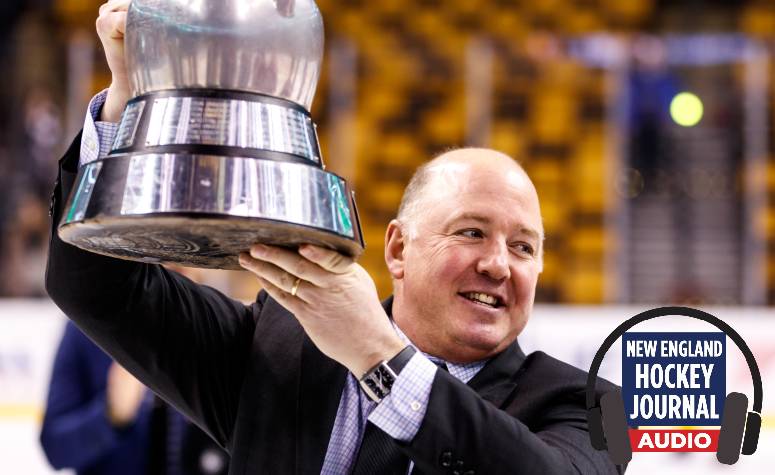
Harvard head coach Ted Donato (Hyde Park, Mass.) is the guest on the newest episode of the RinkWise podcast.
Raised in a hockey family, Donato was a state champion at Catholic Memorial High School before the Boston Bruins drafted him in 1987. He went on to spend four years at Harvard University, where he won a national title in 1989 and captained the 1990-91 Crimson squad.
He spent most of the 1991-92 season on the U.S. National Team and competed at the 1992 Winter Olympic Games in Albertville, France. Signing with Boston after the Olympics, he embarked on a 12-year NHL career with the Bruins and seven other teams before returning home to finish things out in 2003.
After retiring from the NHL, he was named head coach at Harvard in 2004, and is entering his 19th season in Cambridge.
